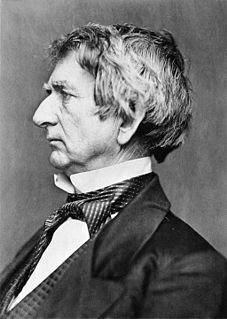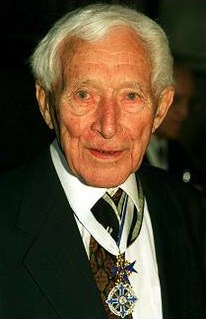A Quote by William H. Seward
I deem it established, then, that the Constitution does not recognize property in man, but leaves that question, as between the states, to the law of nature and of nations.
Related Quotes
It is a moot question whether the origin of any kind of property is derived from nature at all. It is agreed by those who have seriously considered the subject that no individual has, of natural right, a separate property in an acre of land, for instance. By a universal law, indeed, whatever, whether fixed or movable, belongs to all men equally and in common is the property for the moment of him who occupies it; but when he relinquishes the occupation, the property goes with it. Stable ownership is the gift of social law, and is given late in the progress of society.
The Constitution does not protect the sovereignty of States for the benefit of the States or state governments as abstract political entities, or even for the benefit of the public officials governing the States. To the contrary, the Constitution divides authority between federal and state governments for the protection of individuals.
The Constitution is not a law, but it empowers the people to make laws... The Constitution tells us what shall not be a lawful tender... The legislature has ceded up to us the privilege of enacting such laws as are not inconsistent with the Constitution of the United States... The different states, and even Congress itself, have passed many laws diametrically contrary to the Constitution of the United States.
It is for the good of nations, and not for the emolument or aggrandizement of particular individuals, that government ought to be established, and that mankind are at the expense of supporting it. The defects of every government and constitution both as to principle and form, must, on a parity of reasoning, be as open to discussion as the defects of a law, and it is a duty which every man owes to society to point them out.
Whether a law be void for its repugnancy to the Constitution, is, at all times, a question of much delicacy, which out seldom, if ever, to be decided in the affirmative, in doubtful case. ... But it is not on slight implication and vague conjecture that the legislature is to be pronounced to have transcended its powers, and its acts to be considered as void. The opposition between the Constitution and the law should be such that the judge feels a clear and strong conviction of their incompatibility with each other.
It must be assumed and established as a principle, that the right of private property must be regarded as sacred. Wherefore, the law ought to favor this right and, so far as it can, see that the largest possible number among the masses of the population prefer to own property.... But if the productive activity of the multitude can be stimulated by the hope of acquiring some property... , it will gradually come to pass that, with the difference between extreme wealth and extreme penury removed, one class will become the neighbor to the other.









































